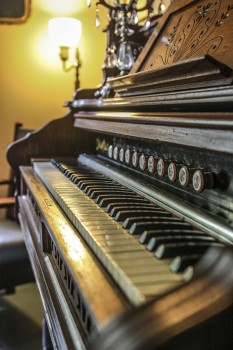Clearing the House after a Loved One Dies: Things You Can’t Donate
When a loved one dies and leaves all of his or her personal effects behind, it can be a great comfort to hold onto some of their most beloved belongings. Valuable artwork, a china cabinet that has been in the family for centuries, personal touches like perfume or a scarf—all these things can be passed on and treasured as you find ways to cope with your grief. Unfortunately, it isn’t possible to keep everything, which means you will eventually need to sort through their belongings.
Clearing out a house in this way can be stressful, and with so many possessions to sort through, you may find yourself earmarking items for donation. While this is a great way to ensure your loved one’s personal effects do not go to waste, there are some items donation organizations may not accept, which means you will need to toss them out or find them a new home.
- Hazardous Materials: This includes paint, cleaning products, batteries, gas tanks, propane tanks, or anything flammable. You will either need to take these with you or dispose of them through the proper channels.
- Weapons: Guns, knives, ammunition, and even decorative weapons (like commemorative swords or knives) tend not to be accepted due to safety concerns. Pawn shops might be better places for these kinds of items.
- Medical Equipment: Because of the health and sanitation issues related to medical equipment, it is rarely accepted for donation (unless you go through a special organization designed to receive this kind of thing). Always be sure and ask your loved one’s doctor or hospice provider for more information on disposing of these items.
- Large, Specialty Furniture: It might seem like a charity would love to receive a large-ticket item like a piano or antique bookshelves, but the reality is that these types of things often get left behind after a death occurs, and the companies rarely have the floor space in their secondhand stores to hold them. If there is a large amount of furniture and no one in the family wants to take it, it might be time to consider holding an estate sale.
- Potted Plants: Plants are one of those things that can be hard to get rid of after a loved one dies because they are living things, but few people are willing to take them on. Try to find the plants a good home or, if that doesn’t work, they may need to be planted outdoors or disposed of.
It might seem as if clearing out a loved one’s house should be a straightforward task, but in the aftermath of the funeral, there are likely to be lots of emotional issues at play. If you are not ready to start tossing things into the garbage or marking them for donation, it is perfectly okay to take some time and approach the clearing out process when you feel ready.



